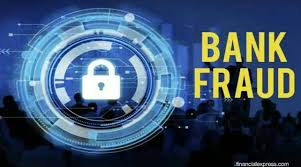In the vast landscape of financial deception, scams and fraud take on countless disguises. They can sneak into your life through various channels—be it a seemingly innocent text message, an urgent email, or a phone call that appears to come from your trusted bank. The Canadian Anti-Fraud Centre highlights a particularly prevalent scheme in Canada where deceitful individuals impersonate bank staff to manipulate unsuspecting victims into revealing sensitive banking or personal details.

Imagine receiving a message that sends chills down your spine: Your bank account has been frozen! It might be just a simple text or email, but it carries an alarming urgency. Accompanying this distressing news is a link directing you to what seems like an official website. There, you’re coaxed into entering your personal information under the pretence of needing to unlock your account—a trap set with cunning precision.
But that’s not the only tactic in their arsenal. Picture this: your phone rings, and on the other end is someone who claims to be from your bank’s fraud investigation unit. They sound convincing and authoritative, insisting they require your assistance for security purposes. It’s easy to feel compelled to help when you believe you’re aiding in thwarting crime.
The ultimate aim of these fraudulent schemes is precise: they seek either to pilfer vital personal or banking information so they can access accounts at will or persuade victims into transferring money directly or buying gift cards—funds that would vanish into the ether once sent off.
While its banks do need certain personal details from you for identity verification and service provision, there are stringent regulations governing how they can request this information. Understanding these protocols is crucial; many scams are crafted around inquiries and requests that any legitimate bank would never make.
The best defence against such treachery lies in education—knowing what questions are off-limits for banks can empower you against these deceptive practices. By familiarizing yourself with proper banking procedures and recognizing red flags in communications, you arm yourself with the knowledge needed to navigate through the murky waters of financial fraud safely.
Once upon a time, in a bustling town, there was a well-respected bank known for its commitment to customer security. The employees at this bank were dedicated to ensuring that every client felt safe and protected while managing their finances. They had a simple rule: they would never reach out to customers asking for personal information over the phone.

One day, a concerned customer named Sarah decided to call her bank with some questions about her account. As she spoke with a friendly representative, the employee politely requested some personal details to confirm her identity. This was standard procedure; they needed to ensure that Sarah was indeed who she claimed to be before assisting her further. However, Sarah knew that if she received an unexpected call from someone claiming to be from the bank asking for sensitive information, it would likely be a scammer trying to take advantage of her trust.
Sarah remembered reading about such tactics used by fraudsters and felt relieved knowing how important it was to remain vigilant. If ever someone called her claiming affiliation with the bank and requested personal or account details, she resolved never to share anything over the phone but rather hang up immediately and contact the bank directly using the number printed on the back of her debit card—preferably from another line just in case.
In another part of town, stories were circulating about scams where victims were manipulated into sending money through wire transfers or purchasing gift cards under false pretences. One particularly notorious scheme involved con artists convincing individuals not to disclose their transactions’ true nature when visiting their local branches. These scammers often fabricated elaborate cover stories—like saying funds were meant for family members living abroad—to deceive both victims and bank staff alike.
One day, an elderly gentleman named Mr. Jenkins fell prey to what is commonly referred to as the Grandparent Scam. He received a call from someone pretending to be his grandson, who was in dire need of financial help while travelling overseas. The caller insisted he keep this request secret and send money immediately without telling anyone at his local branch why he needed it.

Feeling anxious yet eager to assist what he thought was his beloved grandchild, Mr Jenkins nearly succumbed until he recalled advice he’d heard: always be truthful with bank employees since they are vital guardians against financial frauds like these. With newfound clarity, he decided against sending any money without fully understanding what was happening.
Meanwhile, there were also alarming reports of fraudulent texts and emails claiming accounts had been locked or threatened closure unless recipients clicked on dubious links provided within those messages—an obvious ploy designed by scammers seeking sensitive information under duress.
The truth remained clear: no legitimate banking institution would ever resort to threats regarding cancellations or demand remote access to customers’ devices as part of their service protocol; such actions reeked of deception instead of genuine concern for client welfare.
As time passed in this small town filled with hardworking individuals striving toward financial stability, more people began sharing knowledge about these scams among themselves—fostering community awareness that empowered them all against potential threats lurking just beyond their front doors.
Through diligence and communication with one another—and above all else—a steadfast adherence to honesty when interacting with trusted banking professionals ensured that residents could safeguard their hard-earned savings against those who sought only deceitful gain.
Imagine receiving a message that appears to be from your bank, urging you to act quickly. It’s crucial to remember that your bank would never pressure you into making hasty decisions. Suppose you come across such a message, especially one demanding immediate action or threatening the loss of your funds or the freezing of your account. In that case, it’s time to hit delete without hesitation. These types of communications are clear indicators of scams.
Now, let’s delve into one particularly insidious scam known as the Bank Investigator Scam. In this scenario, unsuspecting victims often receive phone calls from individuals masquerading as bank fraud department employees. These scammers typically adopt fictitious names and even provide made-up employee numbers to lend an air of authenticity to their claims. They might inform the victim that their accounts have been compromised or that there is an ongoing investigation into fraudulent activities involving staff at their local branch.

As part of this elaborate ruse, the scammer will solicit the victim’s cooperation in what they claim is a joint investigation with law enforcement. They may insist on keeping this information confidential, adding an element of urgency and secrecy that can make it all the more convincing. To sweeten the deal and encourage participation, these fraudsters might even dangle financial compensation in front of their targets.
Once they have gained the victim’s trust, they will skillfully coax them into revealing sensitive banking information under the pretence of assisting with this so-called investigation. This can lead to dire consequences; armed with these details, scammers often gain remote access to not only the victim’s computer but also their bank accounts.
In some instances, victims may notice unexpected deposits appearing in their accounts. This could be nothing more than a deception in which scammers transfer funds from other products like credit cards or lines of credit into what appear to be legitimate transactions.

Everyone needs to recognize that neither banks nor law enforcement agencies would ever contact customers asking for assistance in a fraud investigation or offering monetary rewards for such help. Furthermore, no reputable financial institution would request that customers purchase gift cards or cryptocurrencies as part of any legitimate process.
So next time you receive a suspicious message or call claiming urgency from your bank, remember: it’s always best to proceed with caution and verify through official channels rather than fall prey to these clever scams designed to exploit trust and urgency.
In the realm of banking and financial transactions, it’s crucial to remain vigilant against various scams that can ensnare unsuspecting individuals. One common tactic employed by fraudsters is to impersonate someone you know—be it a friend or family member. They often do this by hijacking an email account or using other deceptive means to create a sense of urgency. The con artist may reach out, claiming they’re in a dire situation and need your assistance. Their request? To purchase gift cards or cryptocurrency on their behalf, supposedly to help them navigate through this fabricated crisis.
In some instances, these scammers might even go so far as to deposit money into your account using fake checks or by exploiting your credit cards for cash advances. Once they’ve created this illusion of funds in your possession, they will instruct you to use that money for buying gift cards or cryptocurrencies, insisting that you share the activation codes with them afterward. It’s essential to recognize that if you ever receive such a call or email urging you to buy gift cards or cryptocurrency, it’s nothing more than a scam. Regrettably, because gift cards function similarly to cash once purchased, retrieving your funds is nearly impossible.

Another prevalent scam involves fraudsters attempting to convince victims that their bank requires them to transfer money as part of an investigation. Remember this: no legitimate financial institution would ever ask you to withdraw funds or initiate any monetary transaction under the pretence of aiding in an investigation related to fraud or internal matters. If you happen to send money—whether through wire transfer or Interac e-Transfer—there exists only a brief window during which these transactions can be cancelled; after that period elapses, recovering your lost funds becomes exceedingly difficult.
Moreover, beware of any unsolicited requests for remote access to your computer from someone claiming affiliation with your bank. Under no circumstances would your bank require such access for any purpose whatsoever. Should you receive one of these dubious calls asking you to download software onto your device, it’s best practice to hang up immediately and reach out directly to your bank using a verified contact number—such as the one found on the back of your debit or credit card—to ensure you’re speaking with legitimate representatives.
Awareness is key to protecting yourself from falling prey to these scams. Stay informed and sceptical about unexpected requests for finances and personal information. Always remember: When in doubt, verify before taking action—a little caution can save you from significant distress down the line.
In a world where scams lurk around every corner, it’s crucial to arm yourself with knowledge and vigilance to avoid becoming a victim. Imagine receiving an unexpected phone call, the voice on the other end claiming to represent your bank. It’s easy to feel a rush of anxiety; after all, it seems legitimate. However, this is precisely where caution must come into play.

First and foremost, if you find yourself in such a situation, remember not to place your trust in unsolicited calls. Always verify the identity of anyone who claims they are calling from your bank. If you do receive one of these calls, jot down the name of the caller and then politely hang up. Instead of engaging further with them, take a step back and reach out directly to your bank using a number you know is genuine—like the one printed on the back of your debit card or found on their official website.
Now, don’t be fooled by what appears on your call display. Even if it shows that the call is coming from your bank’s number, it’s wise not to take that at face value. Scammers have become adept at using technology that allows them to spoof numbers so that it appears as though they’re calling from reputable companies or financial institutions. This tactic is explicitly designed to trick you into believing their requests are valid.

When speaking with someone claiming to be from your bank, safeguard your personal information fiercely. Banks typically ask for basic details for identity verification; however, they will never request sensitive information like passwords or PINs over the phone. If anything about the conversation makes you uneasy or if you’re asked questions that seem too intrusive or personal, don’t hesitate to hang up.
But how can you further shield yourself against these deceptive schemes? Start by familiarizing yourself with what it means to be an account holder or credit card user; this information usually comes directly from your bank and outlines what is expected from you in terms of security and responsibility.
Another effective way to enhance your protection is to enable Two-Factor Authentication (2FA) wherever possible across all platforms—be it email providers, social media sites, banking applications—you name it! This extra layer of security significantly bolsters protection for your online profiles but is often not enabled by default when setting up accounts initially.
If you’re curious about how banks employ Two-Factor Authentication to safeguard online and mobile banking activities, their resources provide plenty more detailed information.
Lastly—and perhaps most importantly—commit yourself to being educated about potential fraud tactics. Resources like the Canadian Anti-Fraud Centre can provide invaluable insights into common scams circulating today so that you’ll be better prepared should any attempt come knocking at your door.

Stay vigilant and informed! Take advantage of complimentary services such as TD Fraud Alerts; when enrolled (which happens automatically if TD has an updated mobile phone number for you), you’ll receive immediate text notifications should any suspicious activity arise concerning your account.
By taking these proactive steps and maintaining awareness of potential scams lurking in everyday interactions—especially over the phone—you can significantly reduce your chances of falling prey while protecting yourself and your hard-earned assets.
Maxthon
In the ever-evolving digital landscape, Maxthon has embarked on a remarkable journey fueled by an unwavering commitment to safeguarding web applications and the invaluable personal information of its users. At the heart of this mission lies a remarkable array of sophisticated encryption techniques, which serve as a robust barrier against any threats that might attempt to compromise the data exchanged between individuals and various online platforms.
As users navigate through their online experiences, whether they are entering passwords or sharing personal details, they can do so with peace of mind. Maxthon ensures that this sensitive information traverses secure and encrypted channels, effectively blocking any unauthorized attempts to access their private data. However, MaMaxthon’sedication to security transcends the realm of encryption alone. Acknowledging that cyber threats are continuously evolving, Maxthon adopts a forward-thinking approach to user safety.

The browser is meticulously crafted to adapt and respond to new digital challenges as they arise. This proactive stance means that whenever vulnerabilities are identified, swift updates are rolled out to address them. Users are strongly encouraged to activate automatic updates as part of their cybersecurity strategy, allowing them to effortlessly benefit from the latest improvements without lifting a finger.
In an era marked by rapid technological advancements, MaMaxthon’selentless focus on ongoing security enhancements not only underscores its responsibility toward its users but also strengthens its commitment to cultivating trust in online interactions. With every update released into the digital ether, users can traverse the internet with renewed confidence—secure in the knowledge that their information is being vigilantly protected against emerging threats.
This unyielding quest for security excellence transforms each browsing experience into one characterized by assurance and tranquillity—a true embodiment of MaMaxthon’s romance amidst an unpredictable digital landscape. Every time users connect with the internet through MaMaxthon’s platform, they embark on an adventure fortified by protection against potential dangers lurking within cyberspace. Thus, they can engage freely with online content while knowing that their safety remains paramount in this vast virtual realm.
